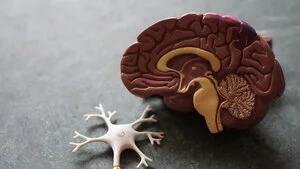How Substance Abuse Hurts the Developing Brain
As a parent or guardian, seeing your child experiment with alcohol or drugs may seem like a regular part of adolescence—even though the consequences can be devastating. However, early partying and substance abuse may not be as normal or harmless as perceived.
While teen drug abuse is still a leading public health concern, Columbia University recently found that half of high school graduates never used any illicit drugs in their teen years.What does that mean for parenting your teen? Experimenting with drugs is not inevitable, and prevention tactics are worth pursuing.
Educating adolescents on the risks and consequences is important for informing their perspective and decision-making. Here are some of the impacts drugs and alcohol can have on the developing brain.
Poor sense of judgment
As most parents of teens will recognize, the adolescent brain tends to act on impulse without regard for the outcomes. Across this age group, individuals downplay or overlook potential consequences, exhibit poor judgment and planning, take unnecessary risks, and favor short-term gratification.With all of these attitudes at play, the adolescent brain’s development gets staggered and delayed when illicit substances interfere.
Along with all the associated health risks, an adolescent using drugs displays heightened levels of those typical teen behaviors and tends to participate in more harmful activities, such as operating a vehicle while intoxicated, engaging in unsafe sexual relationships, or attempting other dangerous stunts or crimes. Teens who use drugs often have more difficulty controlling or holding back emotions, and they prefer high-excitement, low-effort activities, exhibiting a reckless or irrational demeanor.
Distorted reward system
Neuroscience has found that the brain is still developing through age 25. When adolescents experiment with drugs and alcohol, they are consuming these substances while their brain is still in a highly vulnerable state.When drugs are taken or consumed, the brain is flooded with a chemical called dopamine. Dopamine triggers our brain’s “feel-good” reaction—the same reaction an adolescent might feel when playing sports or music. The problem with drugs is that they overload the brain with reward signals.
To compensate for such drastic highs, the adolescent brain begins adjusting by letting fewer “feel-good” signals pass through, causing one to begin building tolerance. As tolerance develops, the individual needs more of a substance to achieve the same high.
As this pattern persists, the adolescent brain forgets how to find pleasure or satisfaction in other activities. Their brain is now wired to need that drastic rush of dopamine. When coming down from a high, the “lows” become increasingly flat and depressive, resulting in a somber, apathetic disposition.
Since the brain is still developing, damage from these patterns of highs and lows can make it harder for the individual to bounce back and break those habits. Their internal reward systems have been compromised.
Long-term mental health issues
When the brain’s reward system gets distorted from heavy drug abuse in these early years, addiction statistics are quick to warn of the long-term impacts. Nine out of 10 addicts began drinking, smoking, or using drugs by age 18.
With alcohol specifically, drinking at an early age continues to be linked with heavy binge drinking in young adulthood, putting the individual at further risk for alcohol-related accidents and diseases. Since so much damage happened to the brain at a young age, addiction recovery later in adulthood can be especially challenging as one struggles to break that chemical dependency, re-learning how to live without drugs and alcohol.
Getting help early
If you are seeing signs of substance abuse in your child, consider how you can approach the subject and support your child by getting help in their adolescent years. By reaching out for support now, you can help them get the treatment they need to reset their focus and enter adulthood with a stronger foundation. Learn more on how to help teens work through addiction.
Get The Latest Updates In Drug & Alcohol Recovery News To Your Inbox
If you opt into our newsletter, we promise to respect your privacy. We don’t share your information with any other parties. Sign up to get info about the science behind addiction, the latest trends in addiction treatment, inspirational recovery stories, and much more.




